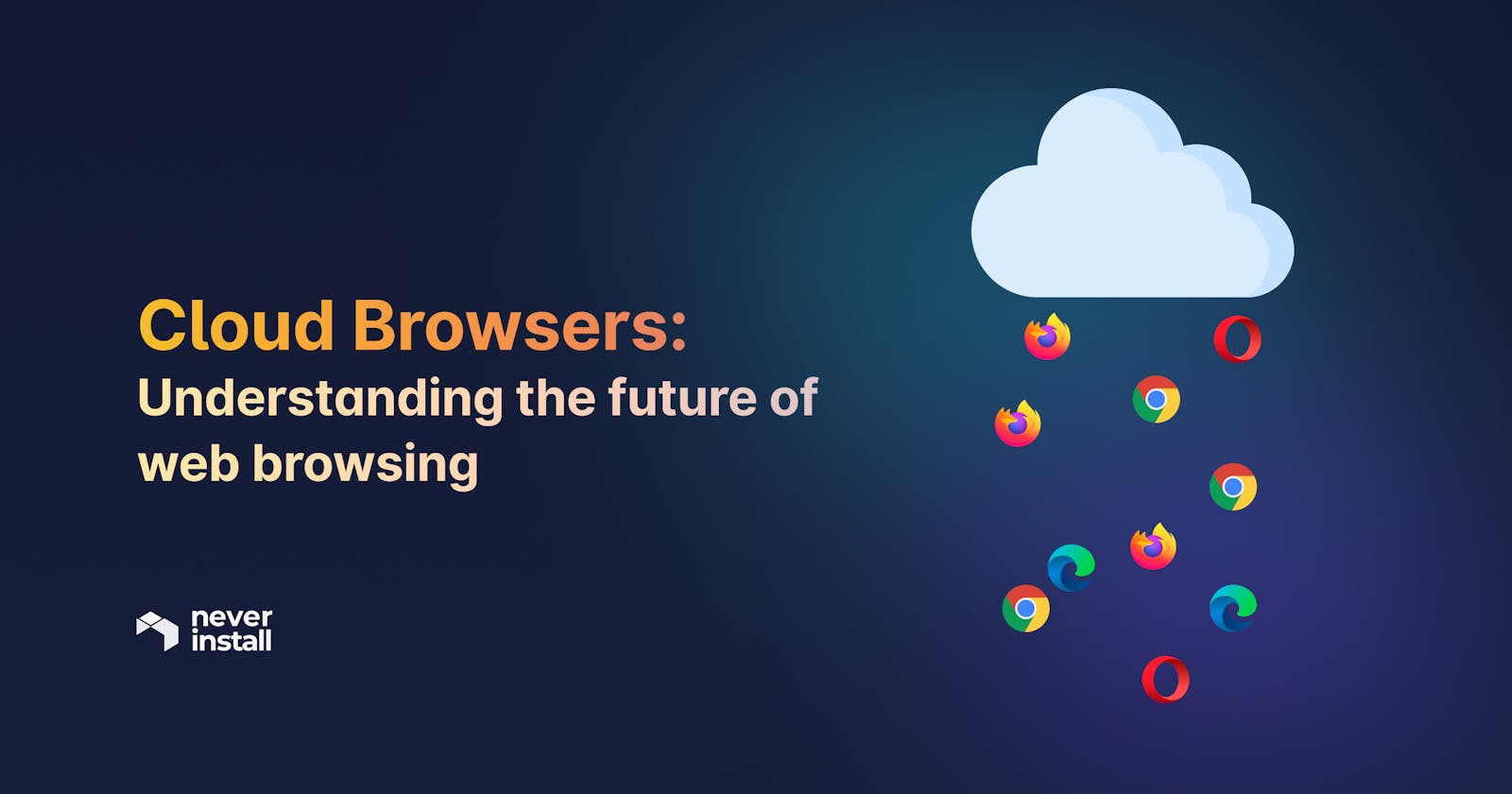The perils of the native browser
Data from the first quarter of 2020 reveals that within most regular internet users’ tech stacks, a web browser was the second most common juncture for exploit attacks (attacks exploiting security vulnerabilities). Try a browser on Neverinstall here.
In other words, the browser you use every day (Chrome, Firefox, Safari, Opera, Edge) carries a high likelihood of being infested by web-based vulnerabilities, all the way from malware, malicious hackers, and viruses whose names you might not know yet.
With the emergence of HTTPS authentication in the 1990s, devs and internet users hoped that they would see a marked improvement in online security. While that did undeniably happen, to this day, many websites simply do not provide HTTPS protection or have flawed HTTPS certificates.
In other words, you are risking malicious infiltration every time you use the browser on your device - desktop, laptop, or mobile. However, technology is nothing if not adaptable. Cloud browsers are an alternative to your native browser (the one installed on your device) that already exists.
What is a native browser?
Native browser essentially refers to the regular browsers you use daily to access the internet. You install it on your device, open it, and use it to access content on the World Wide Web. Think of your web browsers as a set of code that collaborates to perform specific tasks - locate, obtain and render content from the internet per the client's request.
Native browsers work on a client/service model - the browser (the client) sends a request to the web server for information, the server locates the information, sends it back to the client, which displays it via any internet-enabled device.
Modern browsers come with full-featured software architecture enabled to translate and render HTML, JS, and AJAX-based content sourced from web servers. A wide range of browser-compatible plugins also exists to enable browsers to render multimedia content (sound, video, special effects, etc.) to the extent that you can use browsers for video conferencing, software development, and gaming, and the like.
Cloud browsers–familiar yet better
A cloud browser does precisely what a native browser does, except for one key difference. It is run on a remote server rather than the device you use to browse the internet. However, this one difference sets it a world apart.
Browsers are hosted on powerful remote machines in isolated containers. Commands from and to the browser are executed in the container, separated from the users’ device, and users access the retrieved web content via display/streaming protocols (RDP or the latest WebRTC).
Needless to say, as the browsers run in a remote container, the user end-point stays unscathed by security breaches and attacks. It also makes the browser more manageable (thanks to it now being centralized), resource-effective and scalable.
Benefits of Cloud Browsers

Cloud browsers offer multiple advantages that give them a serious leg up over native browsers. The most significant of them are listed below:
Improved Security: Since web code is not executed on the user’s device with cloud browsers, this automatically blocks malicious code, potential threats, or anything that would risk the users’ online security.
Further, if you’re browsing within the cloud, you don’t need to install, manage and update software for added functions such as data loss protection, device security, content filters, firewalls, SSL inspection, and the like.
Enhanced Privacy: Unlike native browsers, cloud browsers will safeguard a user’s identity, location, and other data by processing the information through a data center on the cloud. However, if this is a priority for you, ensure that the service you are using to access the cloud browser does in fact provide this functionality.
Consider Neverinstall, where we allow you to access the internet from different locations across the world, much like a VPN. The IP address of the user is completely masked, allowing users to access data across the world anonymously. The VPN-like nature of browsers on the Neverinstall platform also secures personal information and private data.
Suggested read - Your browser is the new VPN
Cloud service benefits: Cloud browsers tend to carry several merits when it comes to maintenance, scalability, and capacity. Typically, you do not need to bother with updating your browser, installing new plugins to match new content formats, or managing your memory for optimal browser performance. The bulk of the capabilities, however, depending on the provider.
For example, at Neverinstall, one of the things we do is enable users to browse the internet at speeds of up to 1 Gbps. While a user’s ISP (internet service provider) might deliver lower bandwidth, the user can browse the internet at 1 Gbps even with a connection as slow as 1 Mbps. We do this by running the browser in a remote native environment with a high-speed internet connection and streaming it to the screen of the user, allowing them to interact with it. Read here to know more about how we do it.
The many positives it brings to the web browsing table may very well become the future of internet exploration. Why wouldn’t users pick a more secure solution that protects their data and device, and reduces their maintenance burden?
Explore Neverinstall and see exactly how well cloud browsers work for you.
